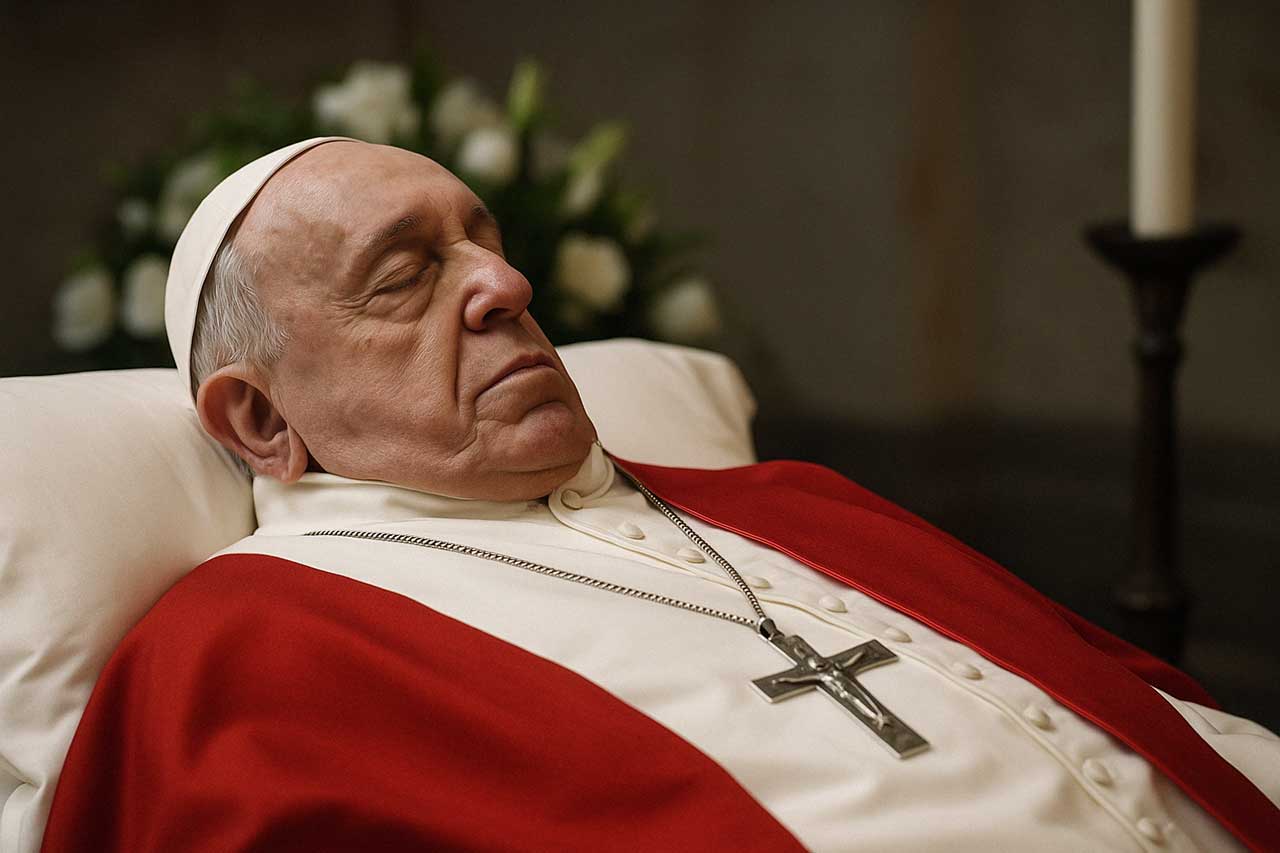Pope Francis: A Legacy of Humility, Service, and Change (1936–2025)

Pope Francis, born Jorge Mario Bergoglio on December 17, 1936, in Buenos Aires, Argentina, passed away on April 21, 2025, at the age of 88. His life was marked by unwavering dedication to the poor, commitment to reform, and a deep desire to bring the Catholic Church closer to the people.
 A Humble Beginning
A Humble Beginning
Born to Italian immigrants in a working-class neighborhood, Bergoglio grew up in a modest home with four siblings. His father was a railway worker, his mother a homemaker. Before entering the seminary, he worked as a chemist and briefly as a nightclub bouncer. He was ordained a priest at the relatively late age of 33, after years of studying literature, philosophy, and theology.
From Argentina to the Vatican
Pope John Paul II appointed Bergoglio auxiliary bishop of Buenos Aires, later promoting him to archbishop and then cardinal in 2001. Known for his humility, he lived in a small apartment, cooked his own meals, and rode public transportation. These values would define his papacy.
Habemus Papam
In 2013, following the historic retirement of Pope Benedict XVI, white smoke rose from the Sistine Chapel after just a day and a half of deliberations. The world met its new pope: Jorge Mario Bergoglio, the first pope from the Americas and the first Jesuit to lead the Church. He chose the name Francis in honor of St. Francis of Assisi, a symbol of poverty, peace, and love for nature.
“Buonasera,” he greeted the crowds gathered in St. Peter’s Square—simple, powerful, and intimate.
A Papacy of Firsts
From the beginning, Pope Francis eschewed the traditional trappings of the papacy. He refused to live in the Apostolic Palace, opting instead for a modest guesthouse. He wore simple vestments, rejected the ornate papal red shoes, and drove a humble Fiat or VW instead of a limo.
His focus remained on those on the margins—migrants, the homeless, the sick, and the imprisoned. He washed the feet of prisoners, installed showers for the homeless at the Vatican, and championed environmental stewardship with the encyclical Laudato si’, calling on humanity to care for “our common home.”
Bold Reforms and Controversy
Francis aimed to reform the Church from within, addressing sexual abuse with strong, though sometimes criticized, responses. He defrocked abusers and held unprecedented meetings on the matter, but critics said policy often failed to follow rhetoric. His financial reforms to increase transparency faced resistance, and his progressive tone on social issues stirred both praise and opposition.
He famously asked, “Who am I to judge?” when speaking about gay individuals of faith—words that shifted the Church’s tone, even if doctrine remained unchanged. He elevated women to higher positions in the Vatican but stopped short of ordaining them.
A Global Shepherd
Over the course of his pontificate, Francis visited more than 45 countries, often emphasizing outreach to the forgotten. He prayed at the Israeli separation wall in the West Bank, embraced Syrian refugees, and met with leaders of multiple faiths to foster interreligious dialogue. He even traveled to Iraq in 2021, the first pope to do so, where he met Grand Ayatollah Ali al-Sistani in a historic moment of unity.
During the COVID-19 pandemic, the image of the Pope blessing an empty St. Peter’s Square became a haunting symbol of global grief and hope. He vaccinated the homeless and urged wealthier nations to share their vaccines.
His Final Days
Though plagued by poor health—part of his lung had been removed in his youth—Pope Francis continued working until the end. Despite multiple hospitalizations, pneumonia, and severe infections, he remained committed to his mission. On Easter Sunday, just one day before his death, he made a final appearance to bless the crowds, though clearly weakened.
Pope Francis died peacefully at the Santa Marta residence in Vatican City at 7:35 a.m. local time, surrounded by close aides and Vatican officials. His passing was confirmed by Cardinal Kevin Farrell and senior Vatican leaders in a somber announcement broadcast to the world.
A Lasting Legacy
Pope Francis will be remembered not just as the 266th pope, but as a bridge-builder—a man of the people who redefined what it meant to serve. His papacy may be debated in theological and political circles for decades to come, but his core message remains clear:
We are all brothers and sisters. Care for one another. Love the Earth. Seek peace. And, as he often asked:
“Don’t forget to pray for me.”
May he rest in peace.

